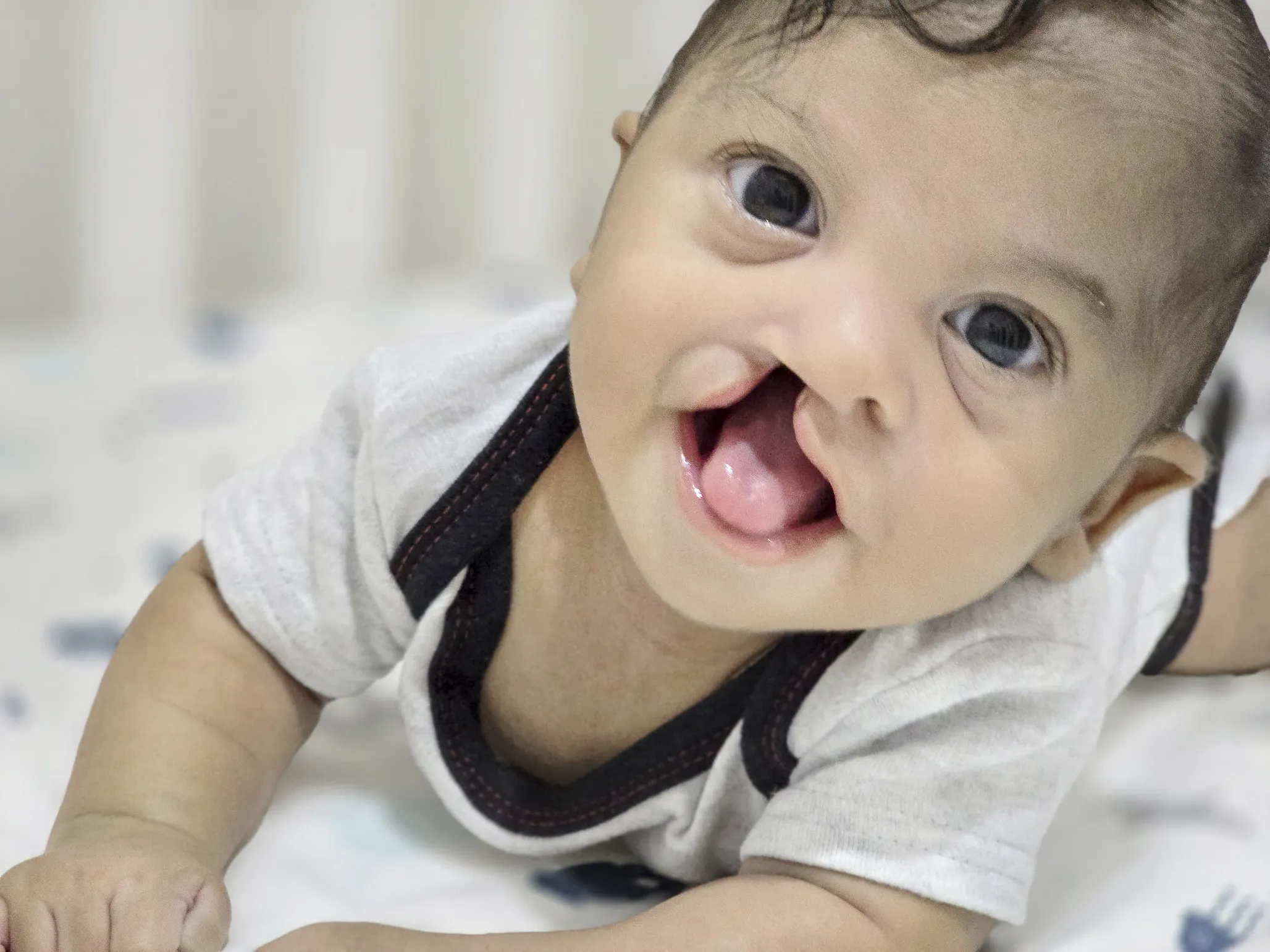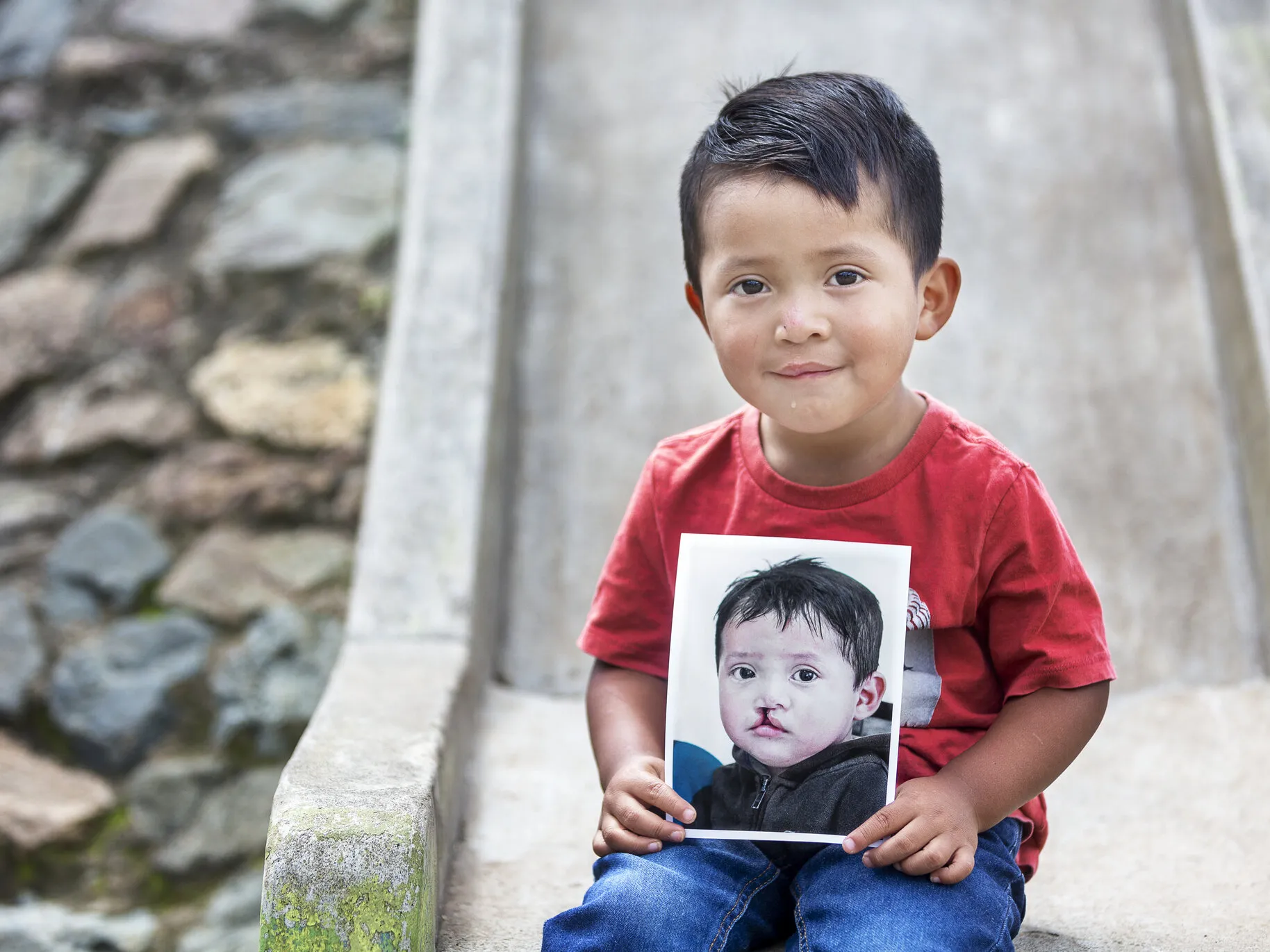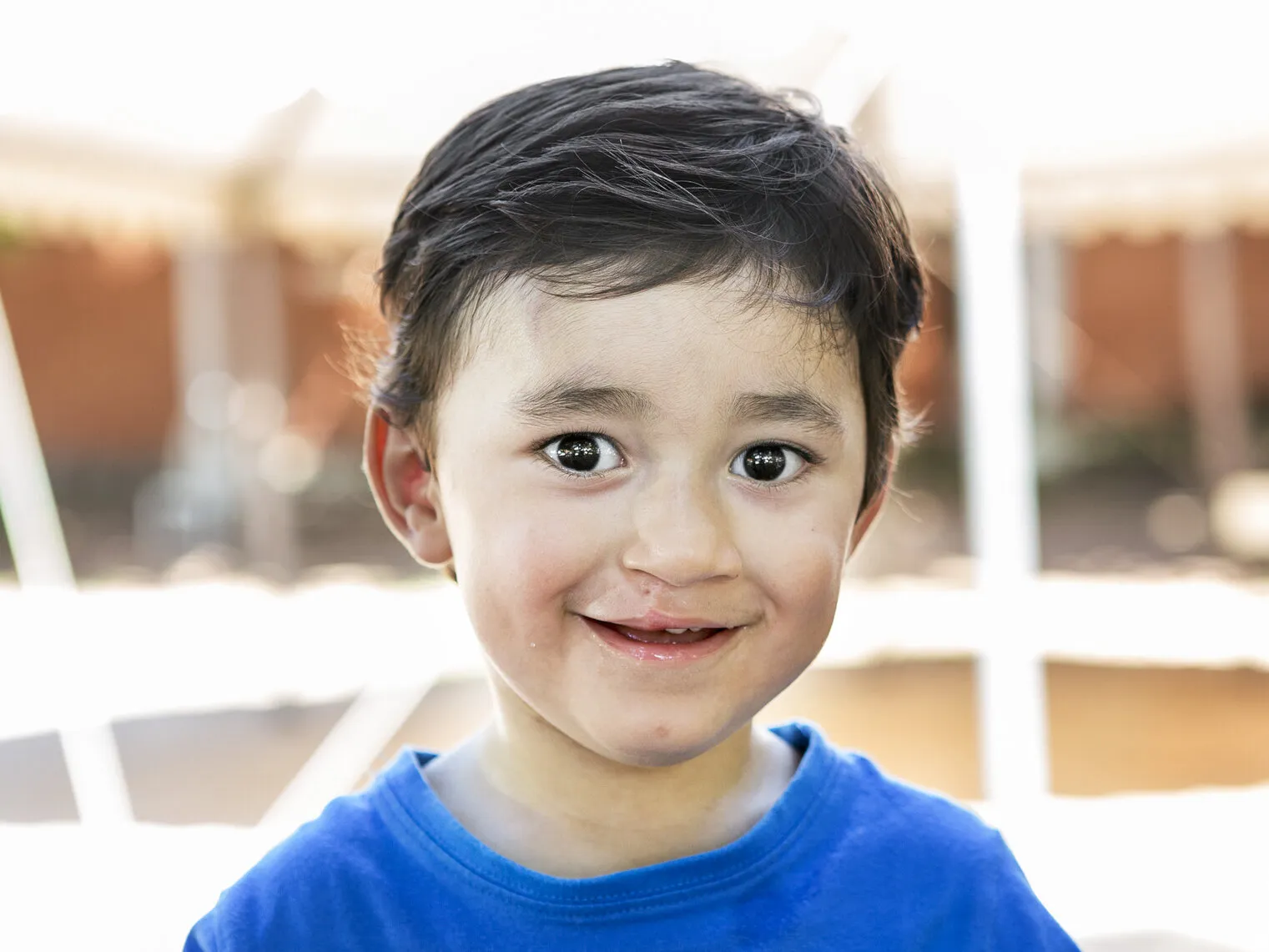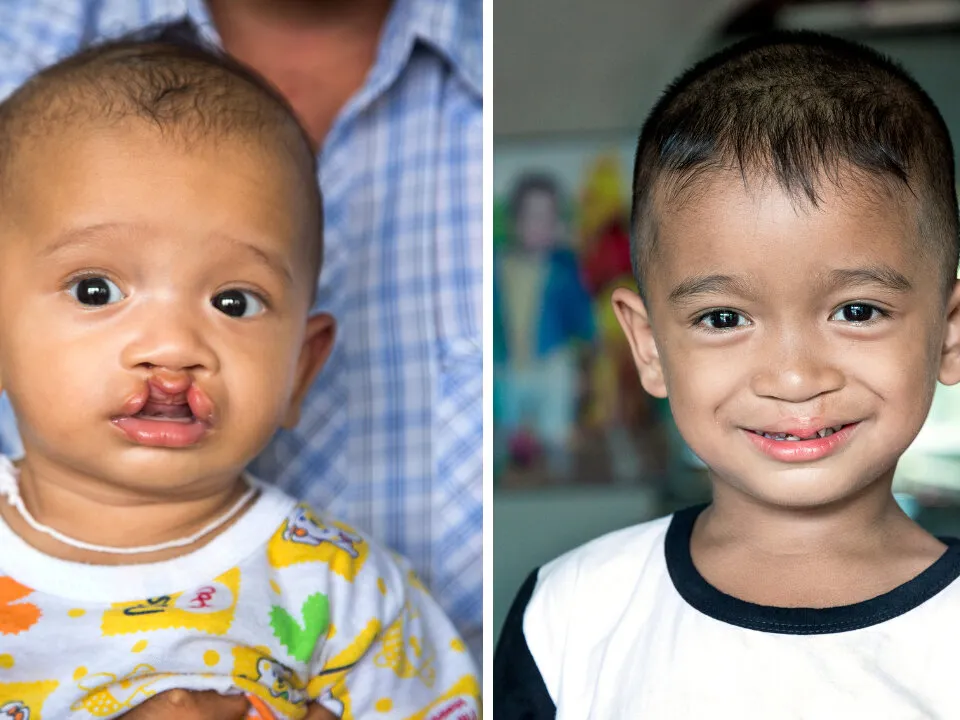Patients
Meet Our Patients: Madaba, Jordan
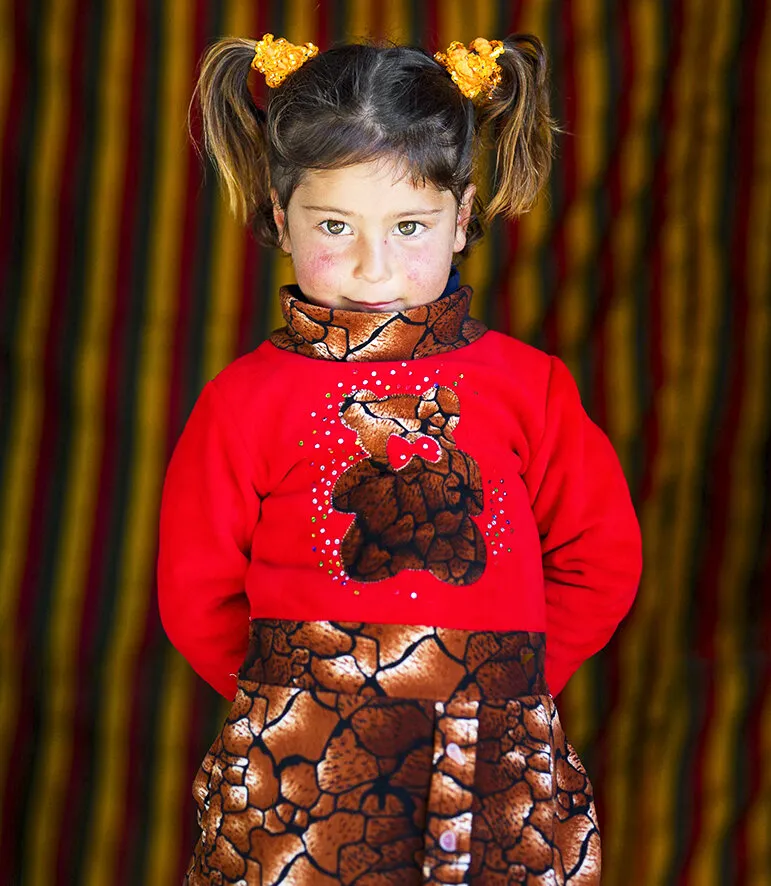
Meet Rana
More than six years ago, Leena and her husband traveled for four days to Jordan, leaving her home and family behind in Syria for a chance at a better life.
Leena said that she had no choice but to abandon everything in order to survive the violence and conflict in her own backyard.
“My home was destroyed because of the war. I had nothing left,” she said.
After four days of travel, she reached a United Nations refugee camp and was provided a one-room tent for shelter.
Today, that tent is home to her three young daughters, her husband, his second wife and their five children. All 11 of them live together.
For the last six years, Leena and her children have lived like this. Her eldest daughter, Rana, is 4 years old, so the tent is the only home that her daughters have ever known.
“I cannot afford to rent a house. I work on a farm with my husband in the fields. I work all day long, and I only earn five dinar a day,” Leena said. “I miss my daughters greatly. I don’t get to spend time with them. This makes my life very hard.”
The family often faces many hardships.
“Every time it rains, the tent falls down, everything is washed away,” she said.
For Leena, living in the tent makes raising her daughters difficult and accomplishing daily tasks a challenge. Sadly, when Rana was 1 year old, life became even harder after a tragic cooking accident.
Rana was playing close by as her mother was cooking potatoes with hot oil for dinner. When Leena turned to check on her, her daughter was no longer in sight.
In a panic, Leena turned back around, but it was too late. In a matter of seconds, her daughter had fallen into the hot oil and burned her arm.
“When I picked her up and I saw that her flesh had melted off of her arm, I was so in shock,” Leena said. “I blamed myself. Other people also blamed me and often asked, ‘why did you let this happen to her?’
“I wish I had two tents, one for cooking and one for living. I can’t help but think this would have never happened if I was back home in Syria.”
Today, 4-year-old Rana still hasn’t received the reconstructive plastic surgery that she needs. She’s grown up covering her arm with long sleeves and hiding her hand behind her back to keep it from being seen.
Other children, including her own brothers and sisters, often tease her because she is different, because of her scars. She hasn’t been able to make many friends.
“She is such a shy girl. In the summer, she wants to wear T-shirts and dresses like the other children, but she is scared,” Leena said. “She always asks me to cover her arm. I want her to get surgery so she can wear a dress, be confident and be happy. All I want is for Rana to be happy.”
Leena knew that she would never be able to afford surgery for Rana, but she did not give up hope. She had faith that it would all work out.
Then one day, she read online about Operation Smile Jordan and learned how it provides free surgery for children in need of reconstructive surgery for cleft conditions and burn-related injuries.
After connecting with the medical team, Leena was told to come to Operation Smile’s screening site in Madaba.
Her hope of getting Rana the care she needed continued to grow.
In Jordan, Operation Smile has expanded the surgical programs it provides in order to address the needs of the local community. Many individuals in this area suffer from cooking-, accident- and conflict-related burns just like Rana.
The goal of burn-related reconstructive surgery is to improve the cosmetic appearance of scars and increase the function and range of motion that may have been limited due to the damaged skin.
Around the world, Operation Smile strives to use the expertise of its volunteer medical teams in treating cleft to create solutions that deliver safe surgery where it’s needed most.
As of March 2019, the United Nations reports that 670,238 individuals have registered as refugees from Syria. Leena and her family are just a few of the Syrian refugees who are currently seeking asylum in Jordan. Many of them do not have access to surgical care.
In the countries where its medical teams work, Operation Smile is able to customize the safe surgical care it provides based on the local need.
In addition to providing cleft care, Operation Smile Jordan provides surgical burn care to children who need it.
As long as there are children like Rana in need, Operation Smile will continue working to make sure safe and essential surgical care is available because the organization believes that access to surgery is a basic human right.
“I speak to my family in Syria almost daily, I miss them. They’re doing fine, and it’s more safe now, but I cannot go back because I left the country,” Leena said. “It is my only hope that I will see my family again. To go back home in Syria and to give my daughters a normal life.”

Meet Mirna
Regardless of where 6-month-old Mirna needed to be during Operation Smile Jordan’s surgical program, her father, Zeyad, was always close by.
Zeyad and his wife, Tasneem, arrived at the screening site with hopes that their baby girl would receive safe surgery and be given the chance to live the life they knew she deserved.
Throughout the family’s time at the program, Zeyad couldn’t contain his love for his daughter and was often seen bouncing Mirna on his knee and giving her many kisses.
Before the day of her five-month ultrasound, Tasneem had never known that a child could be born with a cleft condition. But after the doctor told her about her daughter’s cleft lip, she began to worry about Mirna’s future and how her cleft condition might cause her to face additional health issues throughout her life.
“When I learned how she would be born, I was in shock,” Tasneem said.
She returned home to her husband later that day in a panic but couldn’t find the words to tell Zeyad what the doctor had said.
“All she could do was pace around the house touching her lip,” Zeyad recalled.
Unlike his wife, Zeyad was not concerned when he finally heard the news about his daughter.
He immediately got to work on talking to different doctors and researching online information to learn more about cleft conditions and what potential treatments existed.
The doctor who delivered Mirna informed them that surgery would cost more than $10,000 – a cost that they would never have been able to afford.
When asked how they learned about Operation Smile, Tasneem replied with one word: “Facebook.”
After reaching out online to Operation Smile, Tasneem and Zeyad were given the information they needed by the local team to take the one-hour taxi ride to reach the screening site.
Unfortunately, after receiving her comprehensive health evaluation, Mirna revealed to be too underweight to receive safe surgery.
When Zeyad heard the news, his confident and happy demeanor changed to genuine concern, and he started fumbling with his daughter’s medical papers.
Tasneem told the medical team that the thing she was looking forward to for Mirna most of all was, “that she would be normal, that she would be beautiful.”
Members of the local medical team reassured the anxious parents that all hope was not lost. They explained that Mirna could still receive surgery once she gained a little weight.
A reason why Operation Smile returns to countries like Jordan is because patients like Mirna are still waiting for their chance at a brighter future.

Meet Amar
A seemingly normal day quickly turned into one that Amar would be forced to remember for the rest of her life.
When Amar was 6 years old, she was playing in the garden with her friends in their village just outside of Damascus, the capital of Syria.
Suddenly, the entire street where she grew up was destroyed by fire and shrapnel when a car that was parked near the garden exploded.
Amar was hit by the blast and severely burned by the fire. Now, she lives with a scar covering the right side of her face – a scar that serves as a reminder of the life she left behind in Syria.
“I had no time to think and process what happened, I just reacted,” Amar’s father, Mhammad, said. “I needed to get my family away from the danger. There was no time to waste if we wanted to survive the war.”
Two months later, they relocated to Jordan.
Today, Amar is 12 years old and lives with her family in the capital Amman. Since the explosion, she has received burn care from another medical organization that successfully made the scar on her face slightly smaller. Her father hopes that one day the scar will go away completely.
“I hope the scar will grow smaller and smaller so she can forget what happened to her,” Mhammad said.
Amar is teased heavily by other children in her school because of the burn on her face.
“I don’t remember the explosion, but I’m always teased, and it bothers me a lot. I’m trying my best to cope with it,” Amar said.
Despite the teasing, Amar excels in school. She is in sixth grade, and her favorite subjects are English, Arabic and science. Her voice is soft and kind, and she beautifully blended English and Arabic as she shared her story.
“After school, I want to be a lawyer because I want to help children who went through the same things that I did. I sympathize with them so much,” she said.
Amar is incredibly inspiring. Her positivity and compassion for others shines through her beautiful brown eyes and her warm smile. She enjoys her life outside of school by running and drawing things like animals, people and nature.
“I want to continue my studies and build a new future for myself here. I want to leave what happened to me behind,” Amar said.
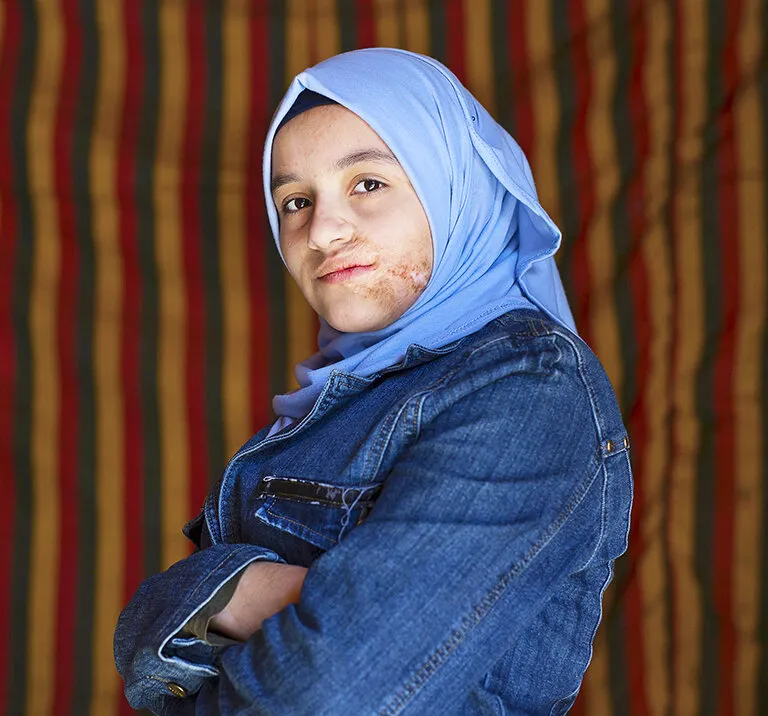
Meet Nebras
Nebras’ mother, Hanaan, remembers the accident.
“I was doing chores around the house. I put water on to boil in a kettle, and I forgot that I left it on,” Hanaan said. “Nebras was playing and accidentally pulled the kettle down, spilling the water.”
The scolding hot water left her with significant scarring on her face, chest, entire right arm and hand. Nebras was 1 year old when the incident happened, and the severity of the burns have required Nebras to receive emergency medical care and expensive, ongoing treatments ever since.
Today, Nebras is 15 years old.
She has received treatment from Operation Smile three times in past. And during a recent surgical program in Madaba, Jordan, Nebras came again in search of additional care.
“I don’t remember any pain from my injury or any of my previous surgeries because I was so young. But I’m nervous to see the doctor today,” Nebras said. “I know I’ve seen lots of doctors before. I don’t know why I feel this way. It’s just something inside of me.”
Nebras traveled to the program site seeking a treatment to help ease the pain in her hand caused by the burn.
“It hurts me when I write too much,” she said.
Writing is important to Nebras. She’s an extremely intelligent girl and a model high school student whose favorite subjects are science and math. When she grows up, she wants to be a doctor.
“It’s a dream of mine. I like working to achieve challenging things,” she said.
Even though she enjoys school, Nebras still faces hurtful treatment from a few of her classmates. She says that they are rude to her because of the way she looks.
They know that she was burned many years ago, but they still ask, “Why does your face look like that?” with hopes that she will react.
“I try not to react, but it depends on my mood. If I’m happy, I explain the accident to them. If I’m sad, I ignore them, but it affects me a lot more.”
Thanks to Nebras’ caring friends, her attempts to disregard the bullies painful comments are made a little easier. She says that she feels lucky to have an amazing group of friends who support her.
“I have many friends. We’re very close to each other, we do everything together. They’re like my soul sisters,” she said.
Hanaan was asked why she chose Operation Smile to care for her daughter’s burns. Her answer was beautiful.
“I have trust in Operation Smile, that’s why I chose to come here. I want the best for my daughter. I know she will make an impact on society. I want her to be someone who empowers and inspires others, like a world leader or a president.”

